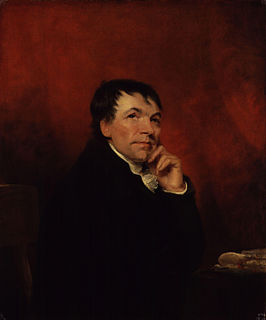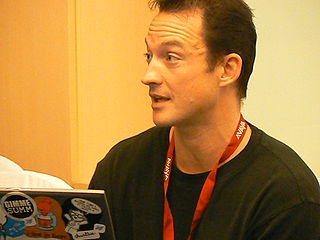A Quote by Maimonides
Eliphas never abandoned his belief that the fate of man is the result of justice, that we do not know all our shortcomings for which we are punished, nor the way how we incur the punishment through them.
Related Quotes
God never punishes his children in the sense of avenging justice. He chastens as a father does his child, but he never punishes his redeemed as a judge does a criminal. It is unjust to exact punishment from redeemed souls since Christ has been punished in their place. How shall the Lord punish twice for one offense?
God in his infinite mercy has devised a way by which justice can be satisfied, and yet mercy can be triumphant. Jesus Christ, the only begotten of the Father, took upon himself the form of man, and offered unto Divine Justice that which was accepted as an equivalent for the punishment due to all his people.
Every man feels that perception gives him an invincible belief of the existence of that which he perceives; and that this belief is not the effect of reasoning, but the immediate consequence of perception. When philosophers have wearied themselves and their readers with their speculations upon this subject, they can neither strengthen this belief, nor weaken it; nor can they shew how it is produced. It puts the philosopher and the peasant upon a level; and neither of them can give any other reason for believing his senses, than that he finds it impossible for him to do otherwise.
Nature never rhymes her children, nor makes two men alike. When we see a great man, we fancy a resemblance to some historical person, and predict the sequel of his character and fortune, a result which he is sure to disappoint. None will ever solve the problem of his character according to our prejudice, but only in his high unprecedented way.
See how he cowers and sneaks, how vaguely all the day he fears, not being immortal nor divine, but the slave and prisoner of his own opinion of himself, a fame won by his own deeds. Public opinion is a weak tyrant compared with our own private opinion. What a man thinks of himself, that it is which determines, or rather indicates, his fate.
In Islamic belief, knowledge is two-fold. There is that revealed through the Holy Prophet (s.a.s.) and that which man discovers by virtue of his own intellect. Nor do these two involve any contradiction, provided man remembers that his own mind is itself the creation of God. Without this humility, no balance is possible. With it, there are no barriers. Indeed, one strength of Islam has always lain in its belief that creation is not static but continuous, that through scientific and other endeavours, God has opened and continues to open new windows for us to see the marvels of His creation
No one punishes the evil-doer under the notion, or for the reason, that he has done wrong -- only the unreasonable fury of a beast acts in that way. But he who desires to inflict rational punishment does not retaliate for a past wrong, for that which is done cannot be undone, but he has regard to the future, and is desirous that the man who is punished, and he who sees him punished, may be deterred from doing wrong again.
The world is ruled by neither justice nor morality; crime is not punished nor virtue rewarded, one is forgotten as quickly as the other. The world is ruled by power and power is obtained with money. To work is senseless, because money cannot be obtained through work, but through exploitation of others. And if we cannot exploit as much as we wish, at least let us work as little as we can. Moral duty? We believe neither in the morality of man nor in the morality of systems. [p. 168]
When the injustice is great enough, justice will lend me the strength needed to correct it. None may stand against it. It will shatter every barrier, sunder any shield, tear through any enchantment, and lend its servant the power to pass sentence. Know this: There is nothing on all the Planes that can stay the hand of justice when it is brought against them. It may unmake armies. It may sunder the thrones of gods. Know that for all who betray justice, I am their fate. And fate carries an executioner's axe.
We think of justice sometimes as getting what you deserve, you know? - ?what crime was committed and what is the punishment for that crime. That's how a lot of the criminal justice works. But God's justice is restorative, so it's not as interested in those same questions of "What did they do wrong?" and "What is the punishment for that?" It's more about what harm was done and how do we heal that harm, and that's a much more redemptive version. So, it definitely doesn't turn a blind eye to harm, but it does say we want to heal the wounds of that.




































